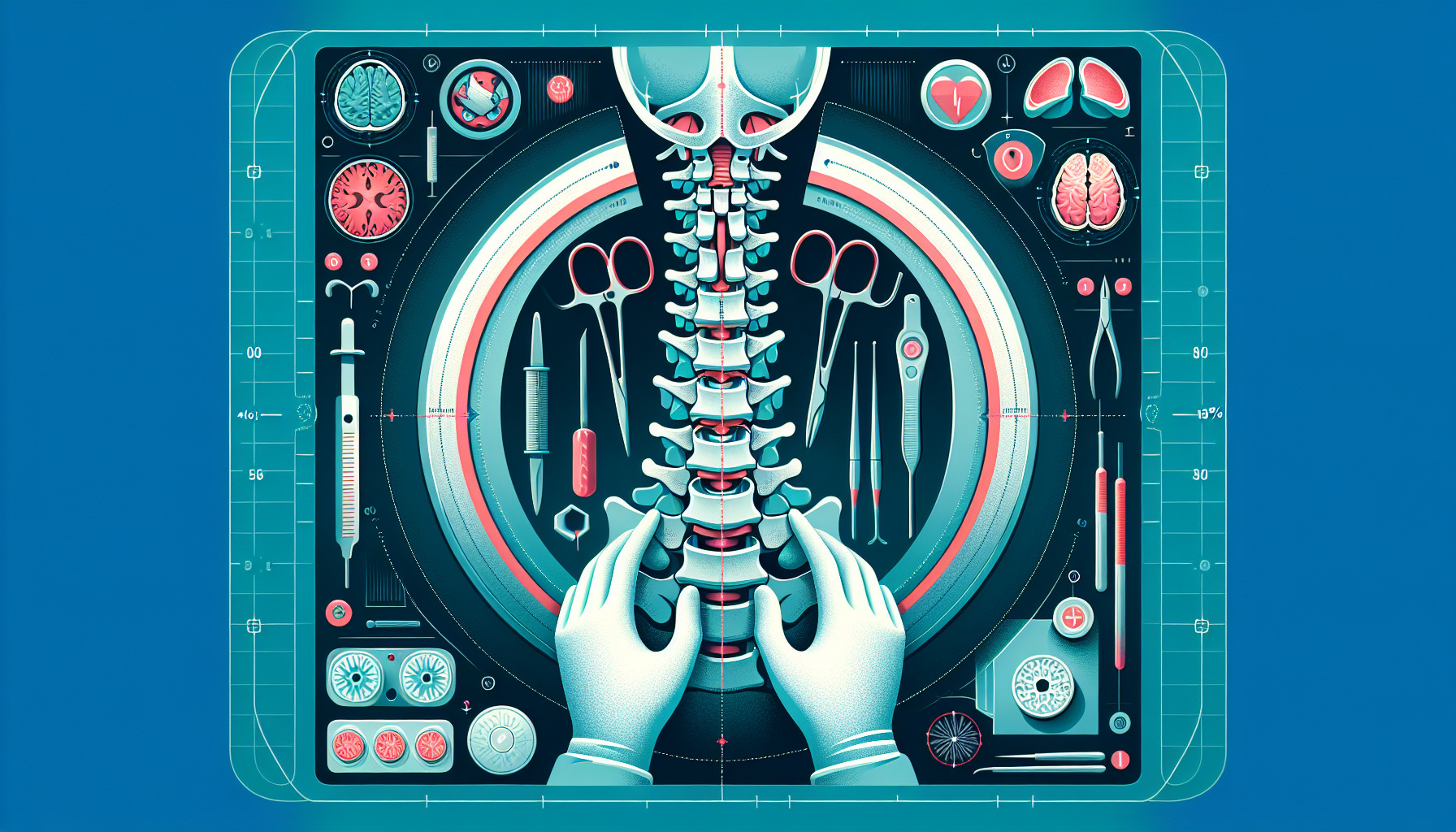Our Summary
This research paper is a review and analysis of literature about a specific type of neck surgery called occipitocervical fusion (OCF). The researchers looked at how the number of publications and citations about this surgery have changed over time, which countries and authors have published the most on this topic, and what specific topics and keywords are most commonly seen in this literature.
They found 762 articles about OCF. The number of publications and citations increased until 2020, then started to decrease. They also noticed that there has been more focus on Ehlers Danlos syndrome, a genetic disorder that can cause problems with the neck and spine, in recent years. Dysphagia, or difficulty swallowing, is another topic that is often mentioned. On the other hand, there has been less focus on rheumatoid arthritis, which may be due to advances in how this condition is managed and treated.
The United States, China, and Japan are the countries that have published the most about OCF. This analysis provides a useful summary of the main trends and concerns in the field of OCF, looking at how these have changed over time.
FAQs
- How has the number of publications and citations about occipitocervical fusion (OCF) changed over time?
- Which countries have published the most research on occipitocervical fusion (OCF)?
- What are the most commonly seen topics and keywords in the literature about occipitocervical fusion (OCF)?
Doctor’s Tip
A helpful tip a doctor might tell a patient about spinal fusion is to follow post-operative instructions carefully, including proper wound care, physical therapy, and avoiding activities that could strain the spine. It is also important to attend all follow-up appointments to monitor the healing process and address any concerns promptly. Additionally, maintaining a healthy lifestyle with regular exercise and a balanced diet can help support the success of the spinal fusion surgery.
Suitable For
Patients who are typically recommended spinal fusion include those who have:
- Severe spinal deformities such as scoliosis or kyphosis
- Degenerative disc disease causing instability in the spine
- Herniated discs that are pressing on nerves and causing pain or weakness
- Spinal fractures or injuries
- Spinal tumors
- Spinal stenosis causing compression of the spinal cord or nerves
- Failed previous spinal surgeries
Overall, spinal fusion is recommended for patients who have not found relief from conservative treatments such as physical therapy, medications, or injections, and who are experiencing significant pain, weakness, or loss of function due to their spinal condition. It is important for patients to discuss the potential risks and benefits of spinal fusion with their healthcare provider to determine if it is the right treatment option for their specific condition.
Timeline
Before spinal fusion:
- Patient experiences chronic neck or back pain, often due to degenerative disc disease, spinal stenosis, scoliosis, or other spinal conditions.
- Patient undergoes imaging tests such as X-rays, MRI, or CT scans to assess the extent of the spinal damage.
- Patient may try conservative treatments such as physical therapy, pain medications, or injections to manage symptoms.
- If conservative treatments are ineffective, patient and their healthcare provider may decide that spinal fusion surgery is necessary.
After spinal fusion:
- Patient undergoes the spinal fusion surgery, where two or more vertebrae are fused together using bone grafts and metal hardware to stabilize the spine.
- Patient may experience post-operative pain, swelling, and discomfort, which can be managed with pain medications and physical therapy.
- Patient will need to follow a strict rehabilitation program to strengthen the muscles surrounding the spine and regain mobility.
- Over time, the fusion site will heal and the patient should experience reduced pain and improved spinal stability.
- Patient may need to follow up with their healthcare provider regularly to monitor their progress and address any complications that may arise.
What to Ask Your Doctor
Some questions a patient should ask their doctor about spinal fusion include:
- What are the specific risks and complications associated with spinal fusion surgery?
- How long is the recovery period after spinal fusion surgery, and what can I expect during this time?
- Will I need physical therapy or rehabilitation after the surgery, and for how long?
- What are the long-term effects of spinal fusion surgery, and how likely is it to be successful in relieving my symptoms?
- Are there any alternative treatments or procedures that I should consider before opting for spinal fusion surgery?
- How experienced are you in performing spinal fusion surgeries, and what is your success rate?
- Will I need to make any lifestyle changes or modifications after the surgery to ensure the best outcome?
- Are there any specific factors about my health or medical history that may affect the success of the surgery?
- What is the expected timeline for scheduling and undergoing the spinal fusion surgery?
- How will my pain and mobility be managed after the surgery, and what should I do if I experience any complications or worsening symptoms?
Reference
Authors: Gorbacheva A, Pierre C, Gerstmeyer J, Davis DD, Anderson BG, Heffernan T, Jouppi L, Daher Z, Tabesh A, Lockey S, Abdul-Jabbar A, Oskouian R, Chapman JR. Journal: World Neurosurg. 2025 Jan;193:1008-1016. doi: 10.1016/j.wneu.2024.09.128. Epub 2024 Oct 23. PMID: 39366481
